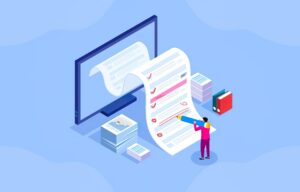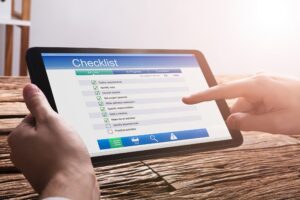Accounting Lease Software
Accounting lease software is a type of software that helps businesses manage their lease agreements and related accounting transactions. This software typically provides lease tracking, payment processing, and financial reporting features.
With accounting lease software, businesses can effortlessly track lease agreements, including critical dates such as start and end dates, payment due dates, and renewal options. They can also manage payment processing and ensure lease payments are made on time.

Additionally, accounting lease software can generate financial reports, such as balance sheets and income statements, to help businesses understand their financial obligations related to leases. Some software may also include features to help companies to comply with accounting standards, such as FQMS and Installmentsoftware.net, which relate to lease accounting. Accounting lease software can help businesses stay organized and manage their lease agreements more efficiently, leading to cost savings and improved financial management.
Type of Accounting Lease Software
Different types of accounting lease software are available in the market, each with its features and capabilities. Here are some of the common types of accounting lease software:

- Lease Accounting Software: This software is designed specifically for lease accounting and helps businesses comply with accounting standards such as ASC 842 and IFRS 16. It enables users to manage lease contracts, calculate lease payments, track lease expenses, and generate lease accounting reports.
- Asset Management Software: Asset management software helps businesses manage their assets, including leased ones. It enables users to track lease terms, monitor lease payments, and manage asset depreciation.
- Financial Management Software: Financial management software is a comprehensive solution that includes various modules such as accounting, budgeting, invoicing, and inventory management. It can be used to manage leased assets and other financial transactions.
- ERP Software: Enterprise Resource Planning (ERP) software is an integrated solution that includes various modules such as accounting, inventory management, human resources, and supply chain management. It can be used to manage leased assets and other business processes.
- Lease Management Software: Lease management software is designed to help businesses manage their lease portfolio. It enables users to track lease contracts, monitor lease payments, and generate lease reports. Some lease management software also includes lease accounting functionality.
- Real Estate Management Software: Real estate management software is designed for businesses that lease or own properties. It enables users to manage leases, track rental income, and generate property management reports. Some real estate management software also includes lease accounting functionality.
These are just some examples of the types of accounting lease software available. Businesses should evaluate their specific needs and choose a software solution that best fits their requirements.
Benefits of Accounting Lease Software
Accounting lease software can offer several benefits to businesses that use it, including:

- Improved accuracy: Lease accounting software can help reduce errors in lease accounting by automating the process and ensuring that calculations are correct. This can help companies comply with accounting standards and reduce the risk of errors that could result in financial penalties or reputational damage.
- Time savings: Lease accounting software can streamline lease management processes, freeing up time for finance teams to focus on more strategic tasks. By automating routine tasks such as data entry and calculations, accounting lease software can help businesses reduce the time and effort required for lease management.
- Compliance: Accounting lease software can help businesses comply with accounting standards such as ASC 842 and IFRS 16 by automating lease accounting processes and ensuring that leases are appropriately classified and accounted for. This can help businesses avoid non-compliance penalties and reduce the risk of financial restatements.
- Better visibility: Lease accounting software can provide businesses greater visibility into their lease portfolios by consolidating lease data in a central repository. This can help companies to make more informed decisions about lease management and identify opportunities to optimize their lease portfolios.
- Cost savings: By automating lease accounting processes and reducing the time and effort required for lease management, accounting lease software can help businesses reduce costs associated with lease management. This can include reducing the need for manual data entry, reducing the risk of errors that could result in financial penalties, and reducing the need for external resources such as consultants or auditors.
